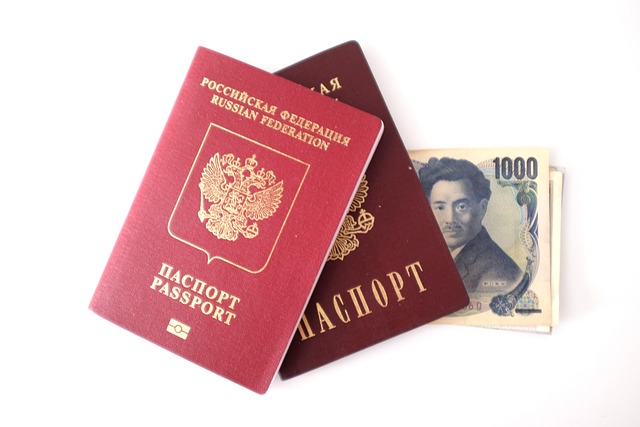Italian Passport Benefits and Visa-Free Travel Options

Holding an Italian passport comes with numerous advantages, particularly due to Italy’s membership in the European Union (EU) and the Schengen Area. These benefits extend beyond just visa-free travel, offering access to a wide range of opportunities for work, education, healthcare, and more. Below is a comprehensive guide to the benefits of holding an Italian passport and the extensive visa-free travel options it provides.
1. EU Citizenship Rights
As an Italian passport holder, you automatically become a citizen of the European Union. This grants you several key rights:
a. Freedom of Movement
- Live and Work Anywhere in the EU: You can live, work, study, or retire in any of the 27 EU member states without needing a visa or work permit.
- Access to Public Services: Enjoy access to public healthcare, education, and social services in other EU countries under the same conditions as their citizens.
b. Voting Rights
- Participate in local and European Parliament elections in your country of residence within the EU.
c. Consular Protection
- Receive assistance from any EU embassy or consulate if you’re traveling outside the EU and there’s no Italian representation available.
2. Schengen Area Access
Italy is part of the Schengen Area, which comprises 26 European countries that have abolished passport controls at their mutual borders. As an Italian passport holder:
- Travel Freely Across Schengen Countries: Move between Schengen countries without border checks. This makes travel seamless for tourism, business, or visiting family and friends.
- Stay Indefinitely: While non-EU travelers are limited to 90 days within a 180-day period, Italian citizens can stay in Schengen countries indefinitely.
3. Visa-Free Travel Options
One of the most significant benefits of holding an Italian passport is the ability to travel to numerous countries without a visa. According to the Henley Passport Index, the Italian passport ranks among the top globally in terms of visa-free access.
a. Visa-Free Destinations
Here are some notable regions and countries where Italian passport holders can travel without a visa:
- Europe:
- All EU and Schengen countries.
- United Kingdom (for short stays up to 6 months).
- North America:
- United States (up to 90 days for tourism or business under the Visa Waiver Program).
- Canada (up to 6 months for tourism or business).
- South America:
- Argentina, Brazil, Chile, Colombia, Peru, and Uruguay allow visa-free entry for Italian citizens.
- Asia:
- Japan, South Korea, Singapore, Malaysia, Thailand, and Indonesia offer visa-free entry for short stays.
- Africa:
- Morocco, Tunisia, Egypt, and South Africa allow visa-free or visa-on-arrival entry.
- Oceania:
- Australia and New Zealand grant visa-free entry for short visits.
b. Visa-on-Arrival Destinations
In addition to visa-free travel, Italian passport holders can obtain visas upon arrival in several countries, including:
- Turkey
- Jordan
- Sri Lanka
- Maldives
4. Dual Citizenship Opportunities
Italy allows dual (or multiple) citizenship, meaning you can hold an Italian passport alongside your original nationality. This opens up even more opportunities, such as:
- Maintaining ties to your home country while enjoying the benefits of EU citizenship.
- Passing on Italian citizenship to future generations, ensuring they also benefit from these privileges.
5. Education and Professional Advantages
An Italian passport offers significant educational and professional benefits:
a. Access to World-Class Universities
- Study at prestigious European universities like the University of Bologna, Sapienza University of Rome, or institutions in other EU countries at reduced tuition rates for EU citizens.
b. Erasmus+ Program
- Participate in the EU’s Erasmus+ exchange program, which promotes student mobility across Europe.
c. Job Opportunities
- Access exclusive job postings reserved for EU citizens in sectors like technology, finance, and academia.
- Benefit from favorable employment laws and protections within the EU.
6. Healthcare Benefits
Italian citizens enjoy access to high-quality public healthcare systems both in Italy and across the EU:
- European Health Insurance Card (EHIC): Use this card to receive necessary medical treatment during temporary stays in other EU/EEA countries under the same conditions as locals.
- Global Healthcare Coverage: Many countries outside the EU also recognize Italian passports for emergency medical care through reciprocal agreements.
7. Tax Advantages
While taxation depends on residency status, Italian citizens living abroad may benefit from certain tax incentives:
- Non-Domiciled Tax Regime: If you relocate to Italy but maintain fiscal residency elsewhere, you might qualify for favorable tax arrangements.
- Double Taxation Treaties: Italy has agreements with over 90 countries to prevent double taxation, making it easier to manage finances internationally.
8. Cultural and Historical Connections
For individuals of Italian descent, obtaining an Italian passport often represents reconnecting with their heritage. It allows them to explore their roots, participate in cultural events, and deepen their understanding of Italy’s rich history.
9. Limitations and Considerations
While the Italian passport offers many benefits, there are a few limitations to keep in mind:
- Visa Requirements for Some Countries: A few nations, such as China, India, Russia, and Saudi Arabia, require visas for Italian passport holders.
- Brexit Implications: Since Brexit, UK-specific rules now apply to Italian citizens traveling to or residing in the United Kingdom.
- Residency Obligations: To maintain certain benefits (e.g., voting rights), you may need to establish residency in Italy or another EU country.
10. How to Apply for an Italian Passport
If you’re eligible for Italian citizenship—whether by descent (jure sanguinis), marriage, naturalization, or residency—you can apply for an Italian passport. The process involves:
- Proving Eligibility: Gather documents such as birth certificates, marriage records, and proof of ancestry.
- Applying for Citizenship: Submit your application to the relevant Italian consulate or municipality.
- Obtaining the Passport: Once citizenship is granted, schedule an appointment at an Italian consulate or police station (Questura) to apply for the passport.



